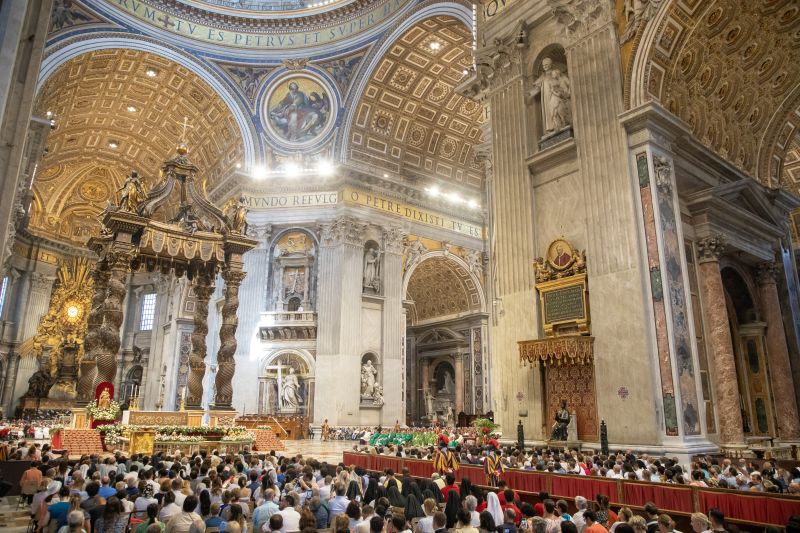
CNA Staff, Apr 29, 2023 / 07:08 am (CNA).
Pope Francis’ second day in Budapest, Hungary, included a visit Saturday morning with children and adults with visual impairments and other disabilities.
Arriving in his wheelchair at the Blessed László Batthyány-Strattmann Institute at 8:45 a.m. local time, he received a tour and was greeted by songs and a reception.
The Holy Father was not expected to give remarks, but spoke briefly from the heart, encouraging those present to walk “alongside the reality of the poor,” the sick, and the needy, because, he said, “this is pure Gospel.”
“Jesus came to take on reality as it is, and to bring it forward. It would have been easier to take ideas or ideologies and bring them forward, without taking into account reality. [But] this is the way of the Gospel, this is the way of Jesus,” he said.
The institute, named for a Catholic eye surgeon, is an outgrowth of the ministry of the late Sister Anna Fehér, a visually impaired religious sister known as “Mother Teresa of Hungary,” who died in 2021.

At the end of the visit, the children and residents joined the pope in praying the Our Father, which they had learned in Latin. They also presented him with a handmade gift: a woven bag in the colors of the Argentinian flag and the Argentinian soccer team.
For his part, the pope left them with a statue of Our Lady, Undoer of Knots.
If you value the news and views Catholic World Report provides, please consider donating to support our efforts. Your contribution will help us continue to make CWR available to all readers worldwide for free, without a subscription. Thank you for your generosity!
Click here for more information on donating to CWR. Click here to sign up for our newsletter.





Our Lady, Undoer of Knots – Pray for us.